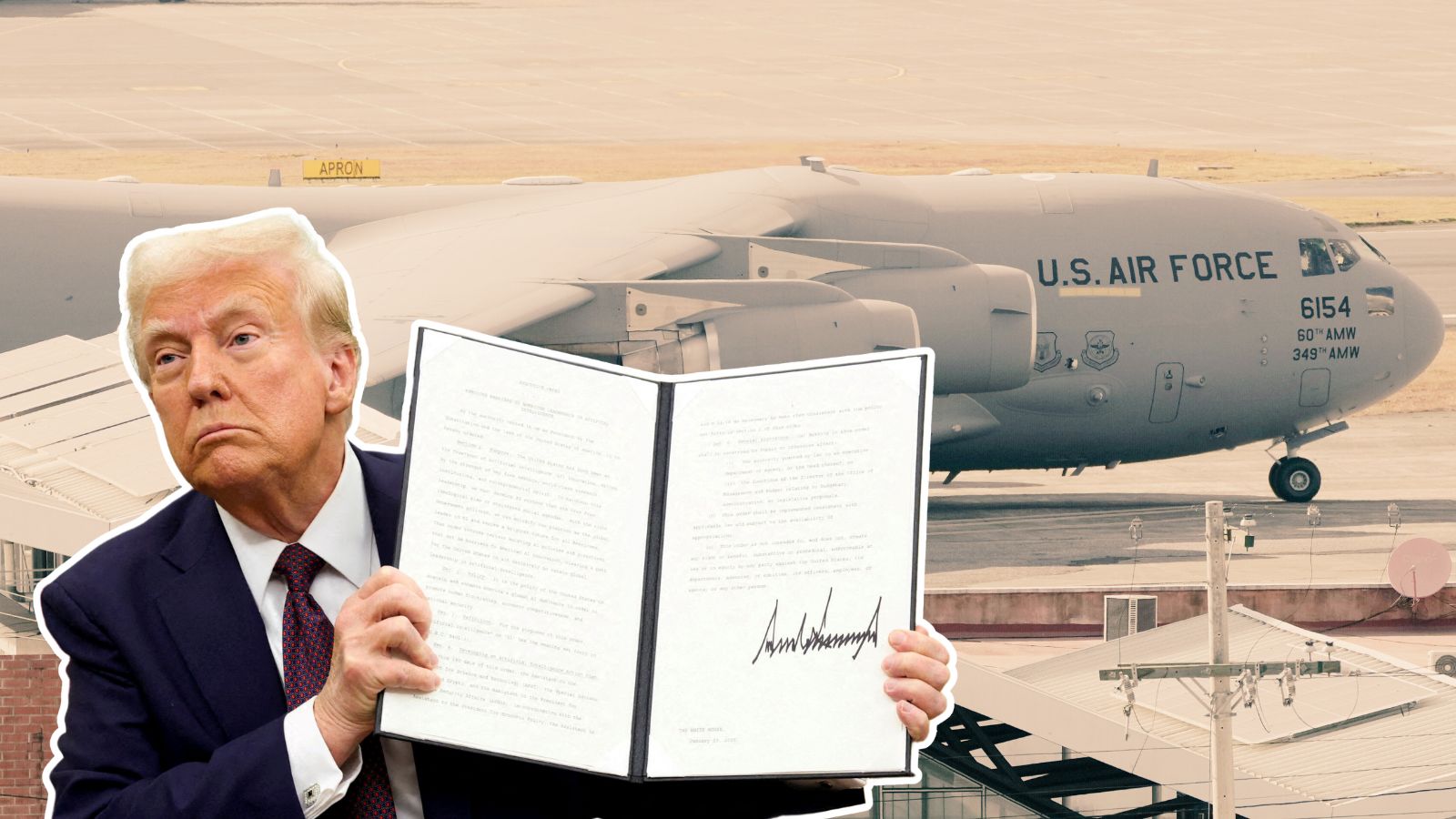 |
|
The Trump administration's intensified efforts to deport undocumented immigrants have brought the plight of Indian nationals residing in the United States into sharp focus. Recent reports indicate that the administration has utilized military aircraft to facilitate the repatriation of individuals apprehended, some under the previous Biden administration. This raises significant concerns regarding due process and the potential for mass deportations targeting a vulnerable population. The scale of the operation is substantial, with estimates suggesting that at least 20,407 undocumented Indians are currently under the administration's scrutiny. This figure comprises 17,940 individuals subject to final removal orders and a further 2,467 currently in detention under the purview of Immigration and Customs Enforcement (ICE). The deployment of military aircraft, traditionally associated with troop transport or humanitarian aid, to conduct deportation operations underscores the seriousness and scale of this initiative.
The use of C-17 military transport aircraft for deportations, with reports suggesting as many as 200 undocumented migrants per flight to India, raises immediate questions about the humanity and logistical efficiency of this approach. The sheer number of individuals involved highlights the substantial resources committed to this operation by the Trump administration. This tactic suggests a deliberate and targeted strategy focusing on swift and potentially forceful removal, bypassing potentially lengthy legal processes. The potential impact on Indian-American communities is considerable, with many families facing separation and uncertainty regarding the legal status of their loved ones. The abruptness of the deportations, particularly in cases where individuals may have established lives in the US, is likely to cause significant distress and societal disruption.
The larger context of this situation is revealed by Pew Research Center data, which indicates that Indians constituted the third-largest unauthorized immigrant population in the US in 2022, totaling 725,000. This significant number underscores the scale of the challenge faced by both the US government and the Indian-American community. The disparity between the number of undocumented Indians and the resources dedicated to their removal raises questions about the prioritization of this demographic within the broader context of immigration enforcement. Furthermore, the use of military resources for this purpose prompts debate about the appropriate role of the military in civilian affairs and whether such deployments align with democratic principles and international human rights standards. The human cost of these deportations extends beyond the individuals being removed, impacting their families, communities, and the social fabric of both the US and India.
The ongoing debate surrounding immigration policy in the United States is intrinsically complex, involving economic, social, and ethical dimensions. The Trump administration's approach, characterized by a focus on rapid deportation and the use of military resources, raises critical questions about due process, fairness, and the overall effectiveness of the strategy. The long-term consequences of such actions remain to be seen, with potential repercussions for bilateral relations between the US and India, as well as the broader impact on the global discourse surrounding immigration and human rights. It is crucial to consider the individual stories and experiences within this larger political and social context. Understanding the narratives of those impacted provides essential insight into the human dimensions of immigration enforcement and highlights the urgent need for more humane and comprehensive solutions.
The situation demands further investigation and analysis to fully comprehend the motivations, methodology, and consequences of this mass deportation effort. Transparency and accountability are critical to ensuring that all legal and ethical considerations are respected and that the rights of all involved are protected. An examination of the legal basis for these deportations, the due process afforded to those being removed, and the long-term impacts on both affected individuals and the broader social landscape is essential. Ultimately, the issue transcends simple numbers and statistics; it is a deeply human story that demands careful consideration and nuanced discussion.
Source: As US sends military plane to India, what to know of Trump’s mass deportation efforts
